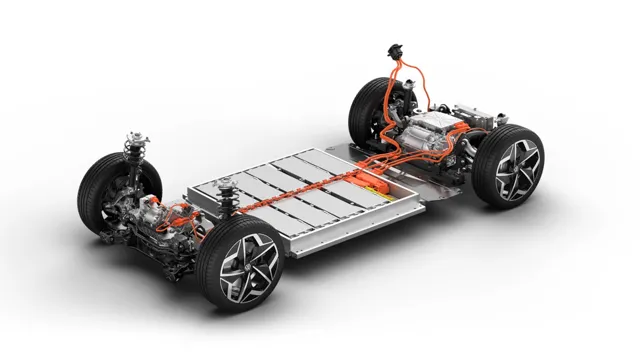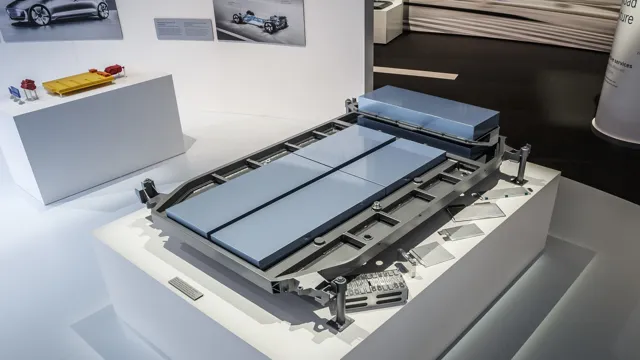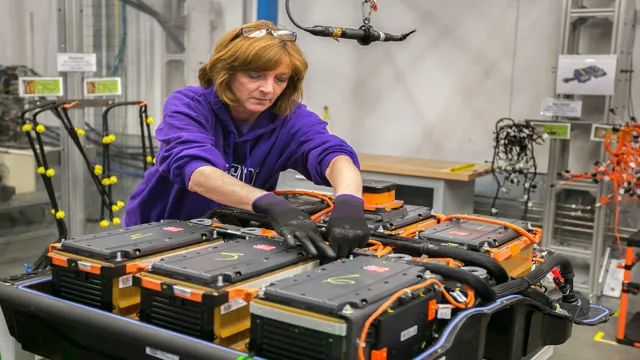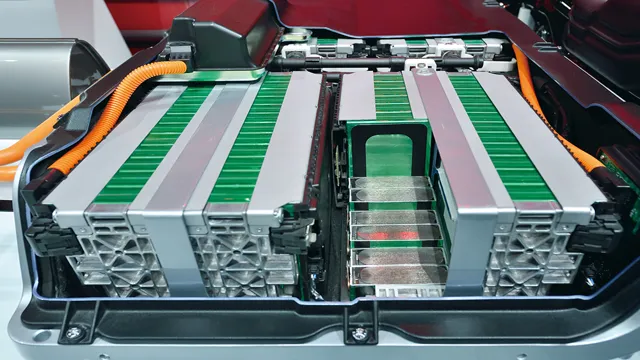Eco-Friendly and Sustainable Future with Battery-Only Electric Cars
Electric cars used to be a thing of the future, but the future is here, and it’s battery-only electric cars. These cars offer a clean, efficient, and more sustainable mode of transportation. Imagine never having to fill up at a gas station again, and instead, being able to charge your car in the comfort of your own home.
Battery-only electric cars use rechargeable batteries to power their motors, meaning zero emissions and a reduced carbon footprint. With advancements in technology, battery-only electric cars are becoming more accessible and affordable, with an increasing number of models available on the market. So, why not consider making the switch to an electric car? You’ll save money on gas and reduce your impact on the environment – a win-win situation.
Benefits of Battery-Only Electric Cars
Battery only electric cars are quickly gaining popularity as more people are seeking eco-friendly alternatives to traditional gasoline cars. One of the main benefits of battery-only electric cars is their low operating costs. These cars are much cheaper to run as compared to their gasoline counterparts since electricity is cheaper than gasoline.
Additionally, they require less maintenance, since they have fewer parts than combustion engines, making them more reliable. Another advantage is the convenience of charging at home or at charging stations, eliminating the need to visit gas stations. Moreover, battery-only electric cars produce zero emissions, reducing their carbon footprint and benefiting the environment.
While battery-only electric cars may have some limitations when it comes to range and charging speed, technological advancements are continuously improving these aspects. Overall, the benefits of battery-only electric cars make them an attractive option for a sustainable, cost-effective, and convenient driving experience.
Lower Cost of Ownership
When it comes to owning a vehicle, one of the most significant expenses is the cost of fuel. However, with battery-only electric cars, this burden can be significantly reduced. Not only are electric cars cheaper to fuel, but they also require less maintenance.
Electric cars have fewer moving parts, which means less wear and tear, and fewer things that can go wrong. This significantly reduces maintenance costs and can save you a lot of money in the long run. Also, unlike gasoline cars, electric cars require no oil changes or other fluid replacements, which further lowers the cost of ownership.
By investing in a battery-only electric car, you can enjoy all of the benefits of a car without breaking the bank. It’s a great way to save money while reducing your carbon footprint and contributing to a cleaner environment. Plus, the added benefit of knowing you’re doing your part for the planet is priceless.
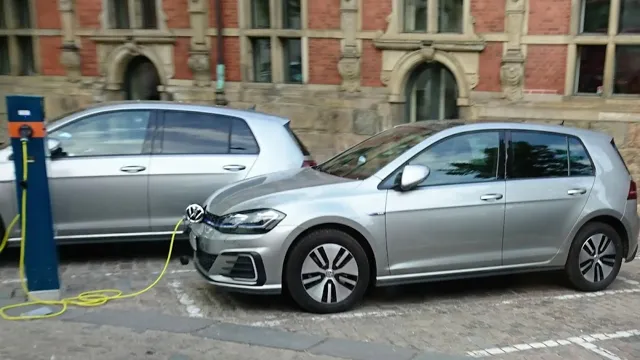
Environmental Sustainability
As we strive towards environmental sustainability, we must consider the benefits of battery-only electric cars. One major advantage is that they emit zero emissions, making them much cleaner than traditional gas-powered vehicles. Additionally, electric cars are quieter and require less maintenance, resulting in a lower total cost of ownership over their lifetime.
Another benefit is that they can be powered by clean energy sources such as solar and wind power, reducing our reliance on fossil fuels. While the initial cost of a battery-only electric car may be higher than a fossil fuel counterpart, the long-term environmental and economic benefits make them a worthwhile investment. As we continue to prioritize sustainability, the shift towards electric cars will play a crucial role in reducing our carbon footprint and creating a greener future.
Smooth and Silent Ride
One of the key benefits of battery-only electric cars is their incredibly smooth and silent ride. Unlike traditional internal combustion engine vehicles, electric cars use electric motors that produce very little noise or vibration, resulting in a serene driving experience. This not only creates a more enjoyable ride for passengers, but it also has practical benefits as well.
For example, smoother rides can reduce the risk of motion sickness and fatigue, making for safer and more comfortable long-distance travel. Additionally, electric cars’ silent operation means they can be driven in urban areas without contributing to noise pollution, making them ideal for densely populated areas. So, if you’re looking for a more relaxing and stress-free driving experience while also making a positive impact on the environment, a battery-only electric car might just be the perfect choice for you.
Top Battery-Only Electric Car Models
Battery-only electric cars are becoming increasingly popular as consumers seek to lower their carbon footprint and reduce their reliance on fossil fuels. There are several models of battery-only electric cars available on the market, with some of the most popular being the Tesla Model S, the Hyundai Kona Electric, and the Nissan Leaf. These cars are designed to run solely on battery power and are therefore emission-free.
They have a range varying from 200 to 300 miles and can be charged at home or at public charging stations. Investing in a battery-only electric car not only saves you money on fuel costs but also contributes to reducing air pollution and greenhouse gas emissions. With the increasing availability of charging infrastructure and advancements in battery technology, battery-only electric cars are set to become the future of sustainable transport.
Tesla Model S
When it comes to battery-only electric vehicles, the Tesla Model S is certainly a top contender. This sleek and futuristic car has won numerous awards for its impressive range and high performance. With a fully charged battery, the Model S can travel up to 373 miles on a single charge, making it one of the most long-distance EVs on the market.
Additionally, the Model S has lightning-fast acceleration thanks to its electric motor and innovative design. Its impressive performance and environmentally friendly features have made it a popular choice for those looking to reduce their carbon footprint without sacrificing style and luxury. Whether you’re looking for a reliable daily driver or a high-performance sports car, the Tesla Model S is definitely worth considering.
Nissan Leaf
If you’re in the market for a battery-only electric car, the Nissan Leaf is definitely worth considering. This vehicle has been around for over a decade, and it has undergone some impressive updates throughout the years. Today, the Leaf has a range of over 150 miles on a single charge, making it a perfect option for your daily commute or weekend road trips.
It also boasts excellent performance and handling, thanks in part to its electric drivetrain. The Leaf’s regenerative braking system captures energy that would otherwise be lost during braking and redirects it back into the battery, providing a more efficient and eco-friendly driving experience. Plus, with plenty of cargo space and advanced safety features, the Leaf is a smart and practical choice for anyone looking to make the switch to an electric car.
So why not take it for a spin and see how it fits your lifestyle?
Chevrolet Bolt EV
The Chevrolet Bolt EV is a top-notch battery-only electric car model to consider. It offers an impressive 259 miles of range on a single full charge, making it perfect for long-distance journeys. With an electric motor that churns out 200 horsepower, the Bolt EV doesn’t lag in terms of speed either.
It has a spacious cabin that is well-designed, and the front seats are comfortable. The car also has an intuitive infotainment system that is user-friendly and easy to operate. With the Bolt EV, you can enjoy a responsive and smooth driving experience that is free from the noise and vibration that comes with traditional gas engines.
Additionally, the Chevy Bolt EV’s battery technology has earned it an impressive score in safety crash tests. It’s an all-around top performer in the electric car market, and it’s perfect for eco-conscious individuals looking for a reliable and efficient mode of transportation.
Charging Battery-Only Electric Cars
Charging a battery-only electric car is fairly easy and convenient, especially if you have the right equipment. The most common method is to plug the car into a charging station, either at home or a public charging point. Some electric cars come with a standard 120-volt plug that can be used to charge the battery overnight at home.
However, for faster and more efficient charging, a 240-volt home charging station is recommended. These stations are usually installed by a professional electrician and can fully charge the battery in just a few hours. Another option is quick charging stations located at public locations such as malls and service stations.
These are much faster than home charging stations and can charge the battery to around 80% in as little as 30 minutes. It’s important to note that charging time and range will depend on the make and model of the car, as well as the size of the battery. However, one thing is certain—battery-only electric cars are becoming increasingly popular due to their environmental benefits and low running costs.
Types of Chargers
When it comes to charging battery-only electric cars, there are several types of chargers available in the market. The most commonly used are AC Level 1 and Level 2 chargers, which can be used at home or public charging stations. Level 1 chargers are slow and require more time to charge the battery fully, while Level 2 chargers are quicker and can provide a full charge in a few hours.
DC fast chargers, on the other hand, are commonly found at commercial charging stations and can provide an electric car with up to 80% charge in approximately 30 minutes. It’s essential to choose the right type of charger based on the electric car’s battery capacity and your charging requirements. A quick charge using a DC fast charger may not always be appropriate, as it can cause damage to the battery if used frequently.
So, it’s essential to consider your driving range, charging needs, and battery capacity before selecting the perfect charger for your electric car.
Charging Time and Range
Charging battery-only electric cars can be quite the task. The charging time and range are important factors to consider when purchasing such a vehicle. Electric cars require energy to function, and this energy is stored in the battery.
However, batteries need to be charged at regular intervals, which can take anywhere from a few hours to several hours depending on the charging method used. Some electric cars are equipped with fast-charging capabilities, which can result in shorter charging times. When choosing an electric car, it is essential to consider its range, which refers to the distance the car can travel on a single charge.
An electric car with a longer range means less time spent charging and more time on the road. Therefore, it is crucial to consider how often you will be using the vehicle and what your typical travel distance will be before choosing an electric car with a specific range. In conclusion, the charging time and range are crucial factors to consider when purchasing an electric car, and it’s essential to choose one that suits your needs.
Conclusion: Battery-Only Electric Cars are the Way Forward
In conclusion, battery-only electric cars are the superhero of the car world – they are clean, efficient, and silently powerful. With their environmentally-friendly capabilities, they are saving the planet one charge at a time. Plus, they give us a glimpse into what the future of transportation could look like – one with less emissions, more innovation, and endless possibilities.
So, if you’re looking for a car that delivers a thrilling ride while also being kind to the environment, look no further than a battery-only electric car. It’s the perfect combination of brains, brawn, and eco-consciousness.”
FAQs
What is a battery-only electric car?
A battery-only electric car, also known as a pure electric vehicle, is a type of electric vehicle that relies solely on electric power from its rechargeable battery pack, without any use of gasoline or other fuels.
How does a battery-only electric car work?
A battery-only electric car runs on electric power provided by its battery pack, which stores energy from plug-in charging. The battery pack powers the electric motor, which drives the wheels and propels the car forward.
What are the advantages of battery-only electric cars?
Battery-only electric cars have several advantages, such as zero emissions, lower operating costs compared to gasoline-powered cars, and quiet, smooth driving experience. They also contribute to reducing dependence on fossil fuels and mitigating climate change.
What is the range of a battery-only electric car?
The range of a battery-only electric car depends on the size of its battery pack and the efficiency of its electric motor. Currently, most battery-only electric cars on the market have a range of around 100 to 300 miles on a single charge, although higher ranges are becoming available as battery technology improves.

